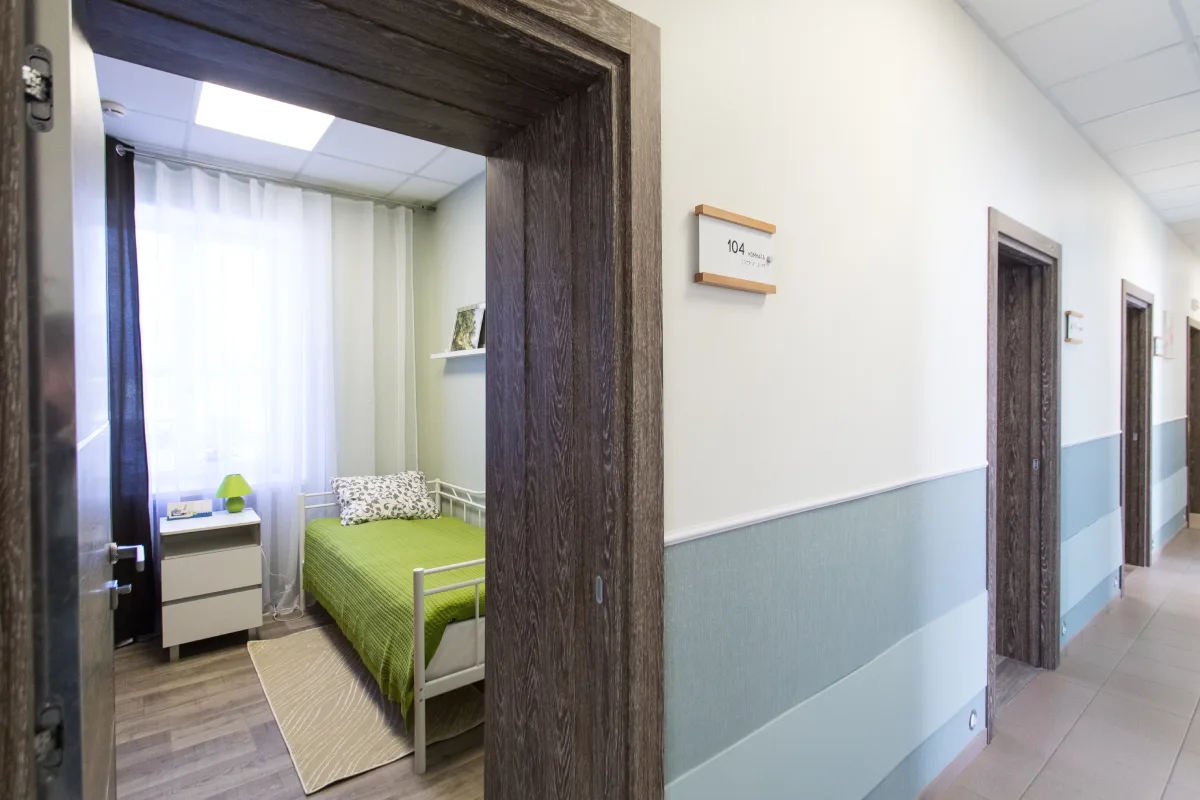
Making the decision to invest in a care home franchise is a significant step that requires careful planning and thoughtful consideration. The care home industry offers a range of opportunities for those looking to enter a growing sector, but it’s essential to understand the complexities involved. This guide will walk you through the key factors you need to consider to ensure your investment is well-informed and aligned with your goals.
This guide is designed to help you thoroughly evaluate these key factors and make a well-informed choice that resonates with both your career goals and personal principles.
In this article, we will cover:
Understanding the Care Home Industry in the UK
The care home sector has become a cornerstone of the UK’s healthcare system, largely due to the increasing needs of an ageing population. With more families seeking high-quality residential care for their elderly relatives, the demand for care home services has surged. This growth is supported by government initiatives aimed at reducing the strain on hospitals and other healthcare facilities. As a result, investing in a care home franchise can be a lucrative opportunity, provided you enter the care home market with a clear understanding of the industry’s dynamics.
In recent years, technological advancements have also started to reshape the way care homes operate. Innovations in resident management, telemedicine, and care planning have improved the quality of care and operational efficiency, making the sector more attractive to investors.

Evaluating the Care Home Franchise Market
Before committing to a care home franchise, it’s essential to gain a thorough understanding of the care home market landscape. The care home industry in the UK is diverse, offering a range of services from general residential care to specialised dementia care and nursing services. Understanding these service areas will not only help you identify your interests but also determine which type of franchise might be the best fit for your skills and goals. This also plays an important part later on down the line when marketing your home care franchise.
- Market Dynamics: The UK’s ageing population has significantly increased the demand for residential care, making the care home sector a thriving market for franchises. However, this demand is also driving more competition. It’s important to evaluate the market saturation in your chosen location, considering factors such as the number of existing care homes, their reputations, and the demographic needs of the area.
- Technological Influence: The integration of new technologies in care homes is transforming how services are delivered. Franchises that embrace innovation—such as electronic health records, telemedicine, and advanced resident management systems—are likely to have a competitive advantage. These technologies not only improve care quality but also streamline operations, making the franchise more efficient and attractive to potential residents and their families.
- Regulatory Environment: The care home industry is highly regulated in the UK, with strict standards for care quality, staffing, and facility management. Understanding the regulatory landscape is crucial for assessing the viability of a franchise. Look for franchises that provide strong support in navigating these regulations, including compliance training and regular audits.
- Economic Factors: Consider the broader economic environment, including government funding and policy changes that could impact the care home sector. For instance, fluctuations in funding for elderly care or shifts in healthcare policy could affect demand and profitability. It’s important to choose a franchise that is resilient and has a proven track record of adapting to economic changes.
- Consumer Preferences: As more families seek personalised and high-quality care for their elderly relatives, understanding consumer preferences is key. There is a growing trend towards more homely, less institutional care settings, and franchises that cater to these preferences may find greater success. Consider the types of care models offered by potential franchises and how well they align with current market demands.

Key Considerations When Choosing a Care Home Franchise
Selecting the right care home franchise requires a careful assessment of various factors. Here are some key areas to focus on:
Brand Strength and Reputation: The reputation of the franchise brand plays a significant role in attracting residents and gaining the trust of their families. Established brands with a strong presence in the market can provide a head start by leveraging their credibility and proven business model.
Support and Training: One of the main advantages of buying a franchise is the support system that comes with it. Evaluate the level of training and ongoing support provided by the franchisor. This includes initial setup assistance, marketing support, and regular training sessions to keep your staff updated on best practices.
Financial Investment: Understanding the financial commitment is crucial. Beyond the initial franchise fee, consider ongoing costs such as royalties, marketing contributions, and operational expenses. It’s also important to review the potential return on investment by analysing the financial performance of existing franchises.
Deciding Between a Franchise and an Independent Care Home
When considering entering the care home industry, one of the fundamental decisions is whether to buy a franchise or start your own independent care home. Both options come with their own set of benefits and challenges:
Franchise Advantages:
- Brand Recognition: Franchises offer instant brand recognition, which can help attract residents and build trust.
- Proven Business Model: Franchises provide a tested and refined business model, reducing the risks associated with starting from scratch.
- Ongoing Support: Franchisees benefit from continuous support, including training, marketing, and operational assistance.
Franchise Disadvantages:
- Costs: Initial franchise fees, royalties, and marketing contributions can be substantial and affect profitability.
- Limited Autonomy: Franchisees must adhere to the franchisor’s guidelines and policies, limiting flexibility.
- Territorial Limits: Operating within an assigned territory may restrict your growth potential.
Independent Business Advantages:
- Full Control: Independent owners have complete control over every aspect of their business, from operations to branding.
- No Franchise Fees: Without the burden of franchise fees, independent businesses may enjoy higher profit margins.
- Unlimited Growth: Independents are not bound by territorial restrictions, allowing for greater expansion opportunities.
Independent Business Disadvantages:
- Brand Building: Establishing a brand and gaining trust in the community can take considerable time and effort.
- Higher Risk: Independents bear all the risks associated with starting a new business, including financial and operational challenges.
- Limited Resources: Without the backing of a franchisor, independent businesses may struggle to access advanced technologies and resources.
If you’re ready to take the next step in purchasing a care home franchise, Care Connect Marketing is here to support your journey. Specialising in digital marketing for the care home sector, we offer comprehensive services designed to help you launch and grow your franchise successfully.
Get in touch today to schedule a free consultation and learn how we can assist you with your marketing strategy.

Steps to Successfully Launch Your Care Home Franchise
Launching a care home franchise involves a series of strategic actions that are critical to your success. By focusing on key areas such as location, staffing, marketing, and technology, you can build a strong foundation for your franchise and ensure it meets the needs of your residents while achieving your business goals.
Finding the Ideal Location
Selecting the right location for your care home franchise is a pivotal decision that can significantly impact your business’s success. Consider the following when determining the best site:
- Population Demographics: Target areas with a high concentration of elderly residents or those likely to require care home services. Understanding the age distribution and socio-economic profile of the area will help you identify a location with strong demand.
- Competitive Landscape: Analyse the level of competition in the area. While some competition is beneficial, an oversaturated market can make it challenging to establish your care home. Look for gaps in the market where your franchise could thrive.
- Accessibility: Ensure that your care home is easily accessible for both residents and their families. Proximity to major roads, public transport, and healthcare facilities like hospitals and clinics will enhance your care home’s convenience and appeal.
- Community Integration: Being located near community resources such as senior centres and support groups can improve your care home’s visibility and foster relationships that are vital for referrals and community engagement.
Building a Skilled and Committed Team
The quality of care your franchise provides is directly linked to the skills and commitment of your staff. Ensuring that you recruit, train, and retain the best caregivers is essential to your success:
- Effective Recruitment: Utilise diverse recruitment channels, including job fairs, online platforms, and local community outreach, to attract qualified candidates. Emphasise the benefits of working with your franchise, such as career growth opportunities and a supportive work environment.
- Rigorous Screening: Implement a thorough screening process that includes background checks, reference verification, and skills assessments. This ensures that you hire trustworthy and capable staff who can deliver high-quality care to your residents.
- Comprehensive Training: Offer detailed training programs that cover not only the fundamentals of caregiving but also the specific protocols and standards required by your franchise. Regular training updates and professional development opportunities will keep your staff engaged and skilled.
- Retention Strategies: Foster a positive workplace culture by providing competitive compensation, recognizing outstanding performance, and offering career advancement opportunities. A motivated and well-supported team is more likely to stay with your franchise long-term, reducing turnover and enhancing care quality.

Crafting a Targeted Marketing Plan
A robust marketing strategy is crucial for establishing your care home’s presence and attracting residents. Tailor your marketing efforts to both leverage the franchisor’s brand and meet the unique needs of your local market:
- Brand Alignment: Ensure that your marketing materials align with the franchisor’s brand guidelines, leveraging their established reputation to build trust with potential residents and their families.
- Digital Presence: Develop a user-friendly, professional website that clearly outlines your services, showcases your facilities, and includes testimonials from satisfied residents and their families. Use SEO techniques to ensure your website ranks well for local search terms related to care home services.
- Local Digital Marketing: Utilise digital advertising tools like Google Ads and Facebook Ads to specifically target key demographics in your local area. Furthermore, actively participate in local online communities and discussion forums to increase visibility and connect with potential residents and their families. Collaborate with local influencers to broaden your reach and strengthen your credibility within the community.
- Social Media Engagement: Utilise platforms like Facebook, LinkedIn, and Instagram to connect with your community. Share informative content, updates about your care home, and success stories to engage with potential residents and their families.
- Local Outreach: Participate in community events, health expos, and local networking opportunities to increase your visibility. Building strong relationships with local healthcare providers and community leaders can lead to valuable referrals.
- Referral Programs: Encourage satisfied residents and their families to refer others by offering incentives. Additionally, establish partnerships with local healthcare professionals who can recommend your services to their patients.
Embracing Technological Advancements
Incorporating technology into your care home operations can greatly enhance the quality of care you provide and streamline your business processes:
- Resident Management Systems: Use advanced software to track resident information, care plans, and health records. This ensures that your staff can deliver personalised care and that you can easily monitor the well-being of your residents.
- Scheduling and Time Management: Implement scheduling software to efficiently manage staff shifts and resident care schedules. This not only optimises staff allocation but also ensures that all residents receive consistent and timely care.
- Communication Platforms: Utilise secure communication tools to facilitate clear and efficient communication between staff, residents, and their families. Video conferencing and messaging apps can also help keep families involved in their loved ones’ care.
- Telehealth Services: Offer telehealth consultations as part of your care services, providing residents with access to medical professionals without the need for travel. This can be particularly valuable for residents with mobility issues or chronic conditions.
- Data Analytics: Leverage data analytics tools to monitor business performance, resident satisfaction, and staff productivity. Using data-driven insights, you can make informed decisions to continuously improve your care home’s operations.
These steps and holistic approach will not only enhance the quality of care you provide but also ensure that your business thrives in a competitive market.

Final Thoughts: Making the Right Choice
Investing in a care home franchise can be a rewarding venture, but it’s not without its challenges. Thorough research and careful consideration of the factors discussed above will help you make an informed decision. Whether you choose to invest in a franchise or start an independent care home, success will depend on your ability to provide high-quality care, manage your business effectively, market your services to the local demographics, and adapt to the evolving needs of the care home industry.
If you’re ready to take the next step in purchasing a care home franchise, Care Connect Marketing is here to support your journey. Specialising in digital marketing for the care home sector, we offer comprehensive services designed to help you launch and grow your franchise successfully.
Get in touch today to schedule a free consultation and learn how we can assist you with your marketing strategy.
